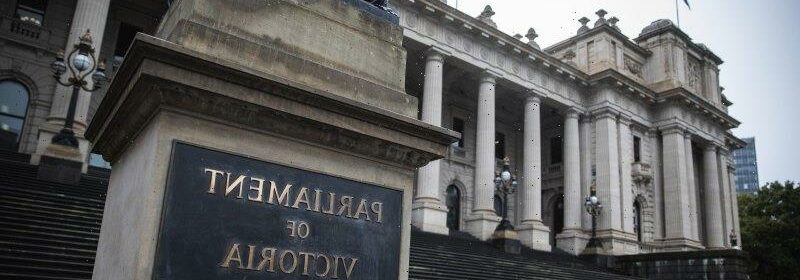A $250,000 ‘fee’ showed, again, our political donations rules need work

This week’s news that a company owned and managed by a billionaire gave $250,000 as a “subscription fee” to a new political party that didn’t even end up contesting Victoria’s 2022 state election could be seen as a problem avoided.
By the same token, we might regard it as mildly amusing that another billionaire, Clive Palmer, spent more than $100 million on last year’s federal election campaign for the party he created to end up with just one seat in parliament, before the party itself was deregistered.
The conduct described in each of these elections is entirely within the laws as they stand. But we shouldn’t accept that these are cases of “no harm, no foul”. Each contains a warning about what might happen if a more determined and systematic effort were made to capture our democratic process using money.
The 2022 state election was the first to take place under the Andrews government’s new laws on political donations, which were introduced in 2018. While these rules eliminated foreign donations, capped domestic ones and lowered the threshold at which donations had to be disclosed to the public, it is clear that significant imbalances in the electoral playing field remain.
The most obvious change, highlighted by the case of GSA Capital’s $250,000 “subscription fee” to the Victorians Party, is that loopholes over what is and is not classed as a donation must be closed to eliminate grey areas where “dark money” might hide. This change should also apply to the costs of attending fundraising dinners, which political parties often file under “other receipts”. In NSW, the amount that can be charged for affiliation or subscription to a party is capped at $2000. If Victoria’s laws are to live up to the government’s billing as “the toughest in Australia”, matching that limit is one simple step that could be taken.
Where matters become more complex is on the other side of the coin, when we consider political spending. As the Victorians Party pointed out in defending its financial returns, here the imbalance often benefits the major parties, which have what Victorian Greens leader Samantha Ratnam called a “legacy asset base” amounting to millions of dollars.
Registered parties are allowed one nominated entity – the Cormack Foundation for the Liberals, Labor Services and Holdings for Labor, and Pilliwinks Pty Ltd for the Nationals – and also take unlimited cash from affiliated entities such as trade unions and the Menzies 200 Club.
The 2018 laws have effectively kicked this ladder away for other parties and independents entering the fray by capping new nominated entities but not acting retrospectively.
This situation, combined with the public money provided to incumbent MPs for administrative expenses and running their offices and communications, means that eliminating private donations alone cannot ensure a fair democratic contest.
To that end, University of Melbourne law professor Joo-Cheong Tham, author of Money and Politics: The Democracy We Can’t Afford, believes that it will also be necessary to cap electoral spending. Besides improving equity, this would alleviate a growing burden on taxpayers.
Whether such measures can be passed through a parliament still dominated by the major parties is a reasonable question. But as part of its effort to secure passage of the 2018 legislation, Labor did agree to consider a spending cap to secure the vote of the then crossbencher Fiona Patten.
The review clause inserted into the laws by crossbench MPs means that an expert panel must consider this question and report back within 12 months of the 2022 election. The process of appointing that panel has begun but has yet to reach parliament’s electoral matters committee. If this review is to do serious work on improving the way our elections are conducted and the extent to which all Victorians can engage in them, there is no time to waste.
The Morning Edition newsletter is our guide to the day’s most important and interesting stories, analysis and insights. Sign up here.
Most Viewed in Politics
From our partners
Source: Read Full Article